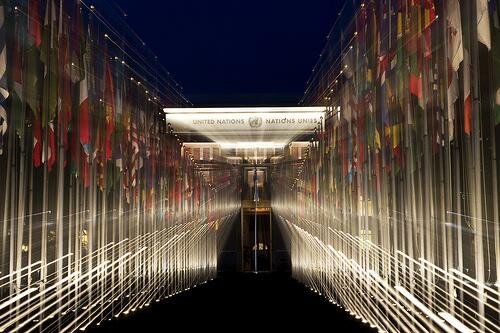The UN Human Rights Committee today emphasized the need for Sri Lanka to take legislative and other measures to address concerns for the independence of the judiciary in the country.
The ICJ and other civil society organizations had made written submissions to the Committee, documenting violations of the International Covenant on Civil and Political Rights, including as regards independence of the judiciary.
In its Concluding Observations, published today, the Human Rights Committee specifically highlights its concern about the impeachment of the former Chief Justice Bandaranayake in 2013.
“The sustained attack on the independence of the judiciary and legal profession by the Government of Sri Lanka must be brought to an end”, said Matt Pollard, head of the ICJ Centre for the Independence of Judges and Lawyers. “The ICJ welcomes the findings and recommendations for reform in this regard issued today by the UN Human Rights Committee.”
Among the other issues addressed by the Committee, were: the lack of guarantees for detainees’ rights to notify family members and have access to legal counsel from the moment of arrest; and intimidation and harassment of lawyers and human rights defenders, as well as reprisals against individuals engaging with human rights mechanisms.
Excerpts from the Concluding Observations:
“Principal matters of concern and recommendations
Constitutional, legal framework and independence of judiciary
5. The Committee is concerned by the 18th Amendment to the Sri Lankan Constitution which, inter alia, discontinues the Constitutional Council and empowers the President to dismiss or appoint members of the judiciary and other independent bodies. Furthermore, it is concerned at the impeachment of the former Chief Justice in January 2013 under circumstances that raised serious doubts about its consistency with basic principles of due process and judicial independence. (arts. 2 and 14)
The State party should:
- Repeal the 18th Amendment to the Constitution;
- Take legislative and other measures to ensure transparent and impartial processes for appointments to the judiciary and other independent bodies; and,
- Take concrete measures to ensure the protection of members of its judiciary from improper influences, inducements, pressures, threats or interferences, including those of the executive and/or legislature of the State party.
In taking the above measures, the State party should take into full account the Committee’s general comment No. 32 on Right to Equality before Courts and Tribunals and to Fair Trial (2007), the UN Basic Principles on the Independence of the Judiciary, and the Paris Principles (General Assembly resolution 48/134, Annex).
…
Detention
7. The Committee is concerned that a significant number of persons in detention have been subject to prolonged and arbitrary detention without trial. It is also concerned at the lack of effective guarantees, in law and practice, of the rights of detainees to notify their immediate family members about their detention and to have access to legal counsel from the moment of arrest. It is also concerned about reports of keeping detainees in unofficial places of detention. (arts. 9, 10 and 14)
The State party should take measures to ensure that no one is subject to arbitrary arrest or detention and that detained persons enjoy all legal guarantees, in compliance with articles 9 and 14 of the Covenant. It should publish all official places of detention on a regular basis and explicitly forbid and criminalise the use of unofficial places for detention.
…
Freedom of expression and participation in the political process
21. The Committee is concerned at widespread reports of intimidation and harassment, including physical attacks, death threats, administrative detention and politically motivated charges, against journalists, lawyers, clergymen, NGO workers and human rights defenders, by State officials, including at the charges brought against opposition politicians. It is also concerned about reports of defamation campaigns against human rights defenders and the blocking of websites. Furthermore, it is concerned at the State party’s failure to bring perpetrators of reprisals to justice. (arts. 19 and 25)
The State party should refrain from any measures amounting to intimidation or harassment taken against persons exercising the right to freedom of expression, and ensure that any restriction to the right is in compliance with article 19, paragraph 3 of the Covenant. It should vigorously investigate all cases of threats and attacks against journalists, lawyers, clergymen, political activists, NGO workers and human rights defenders, hold the perpetrators accountable, and provide effective remedies to victims. Furthermore, it should ensure that any individual or organization can freely provide information to the Committee and protect them against any reprisals for providing such information.”




